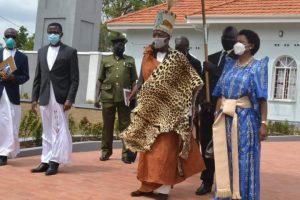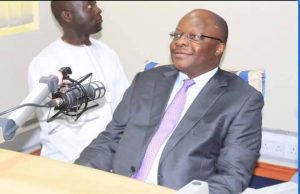
OutToLunch: African Union could help national airlines struggling to fly
OutToLunch: African Union could help national airlines struggling to fly By Denis Jjuuko Sometime back, the Uganda Civil Aviation Authority decided to mark an anniversary by organizing a flying activity. What one needed to do was to arrive at Entebbe airport with Shs50,000. They would then put them on a flight and fly them around Uganda. The queue stretched many miles. The guys at CBS FM also did something similar during one of their Nkuuka y’Omwaka (end of year) events. Pay some little money and they fly you around Kampala. Thousands of people lined up for this once in a lifetime opportunity. If you watch TikTok regularly, you will see many people posting their trips claiming that they “catch flights, not feelings” and all sorts of things. If there is anything many people in Africa love, it is flying even if it is flying to nowhere. Many people on the continent consider flying an element of success. I think it is linked to widespread poverty. In many countries, domestic flights are rare as there is hardly any infrastructure. Where it exists, air tickets are expensive, thereby eliminating many people from boarding flights from one town to another. Those who manage to fly are considered the lucky ones. That probably explains why many family members escort their relatives to the airport in droves. Minibuses full of people descend at airports, drumming and dancing as the traveler busks in glory. They have finally made it. Upon return, some even hold parties. Parents pray for their children to also get an opportunity to fly. If you eavesdrop at Entebbe before departure, you may hear of somebody calling a relative or friend to engage them in prayer so that they also find some luck one day to fly and I am not making this up. It is that serious. Flying to many isn’t just a means of travel. It is status. It is arrival on the big stage. It is success. That same mindset many times explains the desire by countries to set up airlines. Every country on the continent wants to set up a flag carrier. The reasons given are many. National pride is usually among the top five. Airport or aviation authorities also with the same mindset slap huge taxes on each ticket. Airport ground handling is one of the most lucrative businesses in Africa even when the number of passengers going through these airports is minimal. Passengers who have longed to fly expect five-star experiences even when they don’t want to pay for them — champagne to flow endlessly, great food, free internet, movies and the like. To keep these few passengers happy, airlines end up charging a premium, thereby eliminating many people who would have been able to fly. It then becomes difficult to make money from a very small base of regular passengers. Yet, we many times complain about the exorbitant air ticket rates forgetting that everything we consume on board comes at a price. The equipment is expensive to buy, operate and maintain. Also, the majority of Africans have no reason to travel much. Their incomes are meagre and majority are subsistence farmers without any real need to fly anywhere. Without improved incomes, African airlines will continue to struggle. Also, because poor countries love owning national flag carriers without putting in enough resources, the airlines will continue to struggle to compete with middle eastern carriers. How on earth is a national airline with global or even continental ambitions but operating just 4-6 planes going to compete with Emirates, Qatar or even Air Arabia? It is always going to be frustrations for passengers who in the era of social media who are going to create one communication crisis after another. Brand reputation tanks. The few passengers end up preferring to pay a premium to fly the reliable carriers from Middle East, Europe or even Ethiopia. The national airline ends up in the cemetery. Flying within Africa could provide a lifeline for African national carriers but many countries demand visas from each African while allowing Europeans and North Americans to fly in without them. If people need expensive visas that are also difficult to access, it then becomes very difficult to create a critical mass of travelers within the continent. Look at Europe for example, it is almost borderless. People just wake up and travel without worrying about access. Although it is a very rich continent, being borderless is one of the reasons many people fly in Europe and air tickets are very cheap. The African Union need not be an organization that issues communiques only rather one that facilitates movement and trade across the continent by removing barriers that keep us under developed. The writer is a communication and visibility consultant. djjuuko@gmail.com


